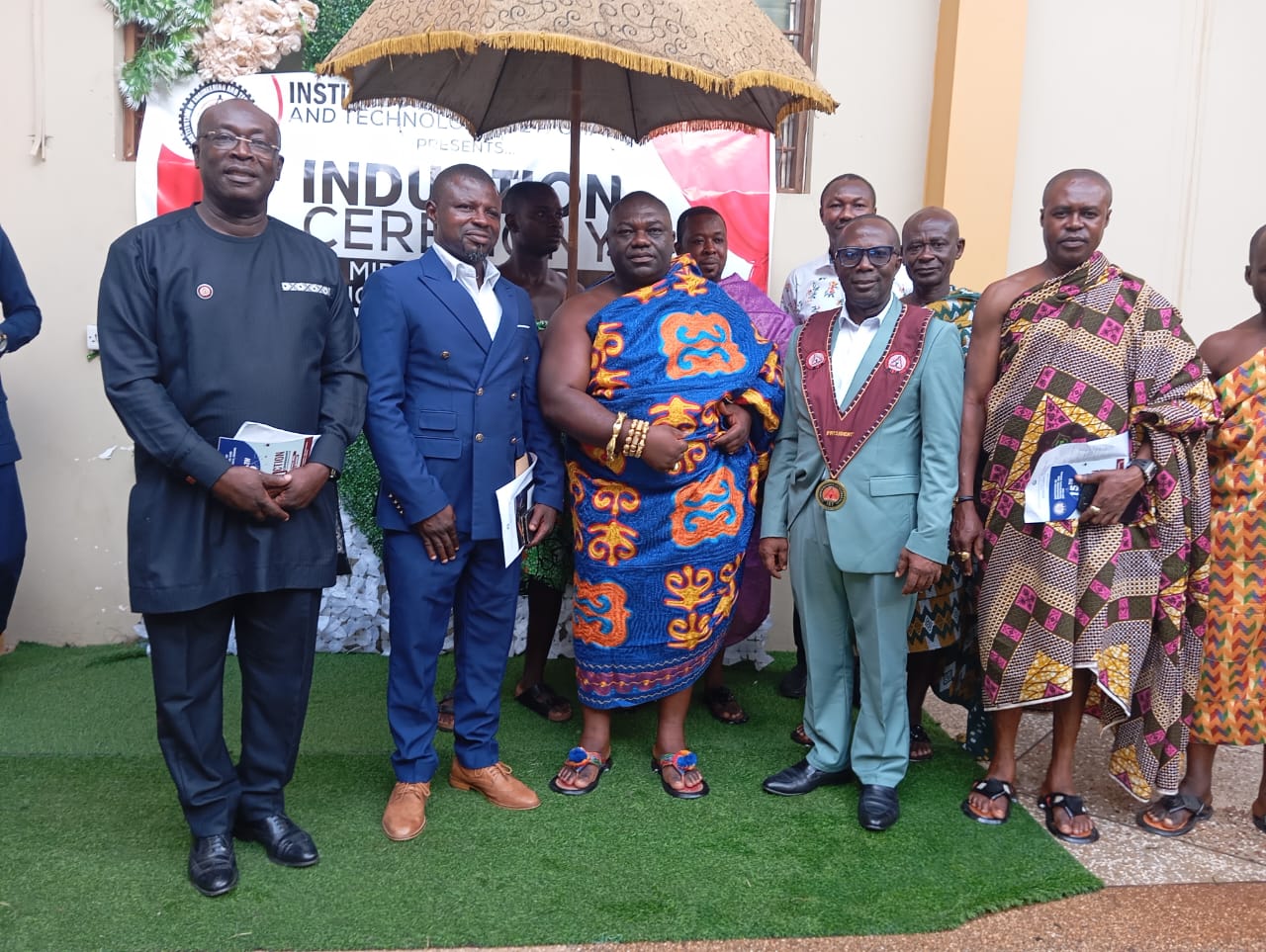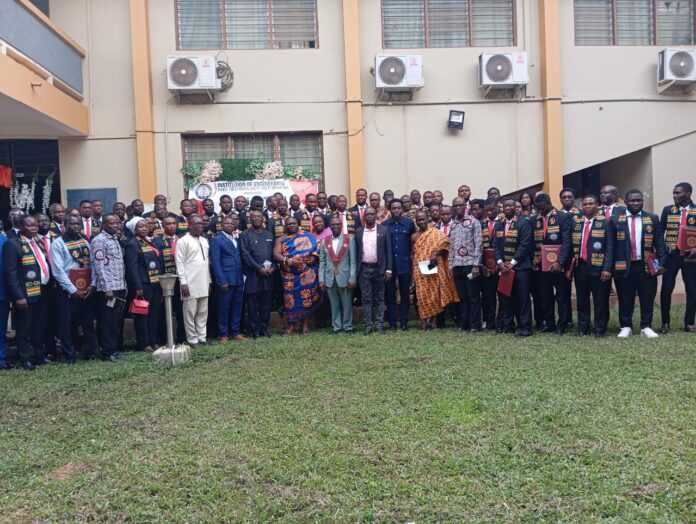At the induction ceremony of new engineering professionals in Kumasi, Engr. Henry Kwadwo Boateng, President of the Institution of Engineering and Technology, Ghana (IET-GH), delivered a powerful and urgent message that resonated far beyond the gathering of engineers.
His speech highlighted a glaring gap in national policy—the exclusion of engineering students from the trainee allowance programmes recently restored for nurses and teachers.
While the restoration of training allowances for nurses, announced by President John Dramani Mahama during his visit to the Bono East Region, was welcomed as a significant win for the healthcare sector, it raised a critical question: Why are engineering students left out of this vital support?
Engr. Boateng challenges the long-standing rationale that trainee allowances are necessary only for professions facing personnel shortages.
In Ghana’s current development context, the most pressing shortage is in engineering, technology, and skilled trades—the very backbone of industrialization, infrastructure development, and innovation.
Despite engineers’ vital role in building roads, power plants, factories, and digital systems, engineering students across Ghana’s technical universities, vocational institutes, and polytechnics receive no allowances, no policy-backed motivation, and little formal recognition.
This neglect has consequences. Increasingly, skilled artisans and technicians from neighboring countries fill roles in Ghana’s job sites—a trend not born from a lack of Ghanaian talent or interest but from insufficient investment and support for local trainees.
Engr. Boateng’s plea is clear and compelling: engineering students and trainees deserve equity.
If Ghana is serious about becoming industrialized and self-reliant, the nation must extend trainee allowances beyond nurses and teachers to include engineering students, technologists, and technicians.
This is not about preference or favoritism—it is about national progress and ensuring the future workforce is adequately motivated and supported.
The President of IET-GH respectfully called on President Mahama and all policymakers to broaden the scope of trainee allowances to encompass the engineering sector.
He emphasized that empowering these future engineers is foundational to building a “Ghana Beyond Aid,” a Ghana capable of sustaining its development through local expertise and innovation.

To the newly inducted engineers present, Engr. Boateng issued a rallying call: they are not only professionals but also the nation’s changemakers and innovators.
Their role extends beyond technical skills to leadership and advocacy—championing the cause of engineering and influencing policies that shape the sector’s future.
This moment is more than a professional milestone. It is a critical juncture in Ghana’s development journey.
Providing trainee allowances to engineering students is a necessary step toward equity, motivation, and ultimately, a stronger, more self-sufficient Ghana.
As the nation applauds its newly inducted engineers, it must also listen closely to Engr. Boateng’s call—a call to recognize, invest in, and empower the engineers who will build Ghana’s future. Without this, the dream of sustainable industrialization and innovation remains just that—a dream.
Who Should Qualify For Trainee Allowances In Ghana Today?
The recent policy focus on trainee allowances rightly highlights the need to attract talent into critical sectors. But in today’s Ghana, this must go beyond nurses and teachers.
The scope should be expanded to include:
-
Engineering students enrolled in technical universities, polytechnics, and vocational institutes, whose training directly supports infrastructure and industrial development.
-
Technicians and technologists who form the skilled backbone of the engineering workforce.
-
Newly inducted professional engineers who will take leadership roles in driving innovation and economic growth.
Extending trainee allowances to these groups is not merely about financial support—it is a strategic investment in Ghana’s future, ensuring the country nurtures the talent needed to lead its industrial and technological transformation.
Source: Kodwo Mensah Aboroampa
ALSO READ:



